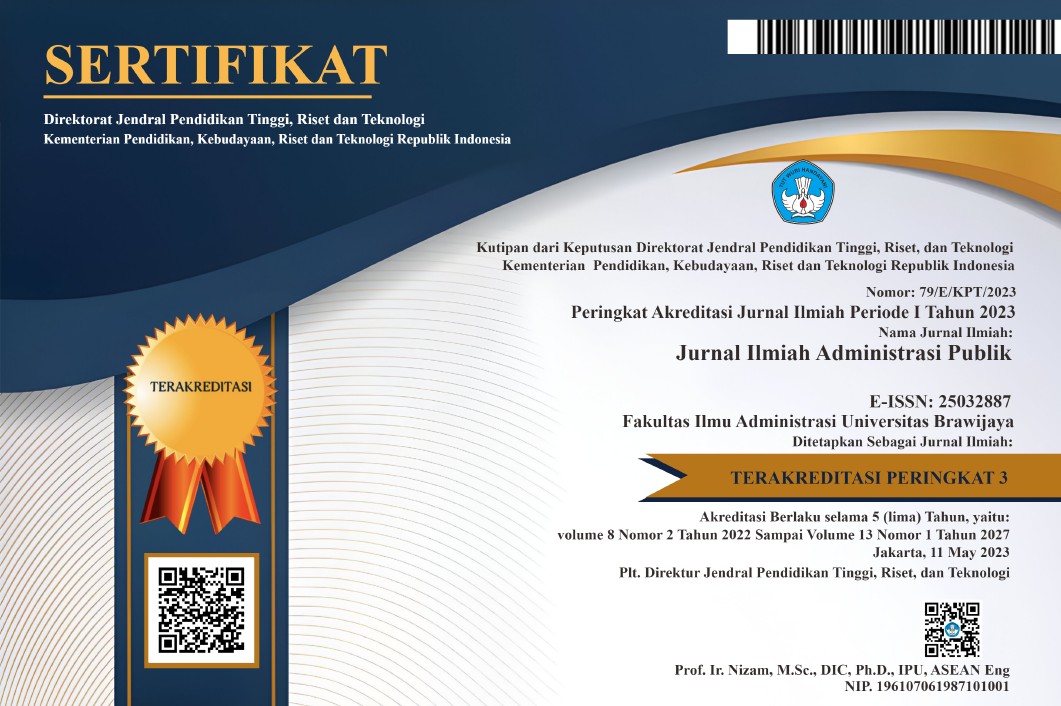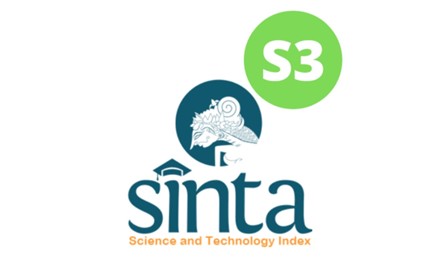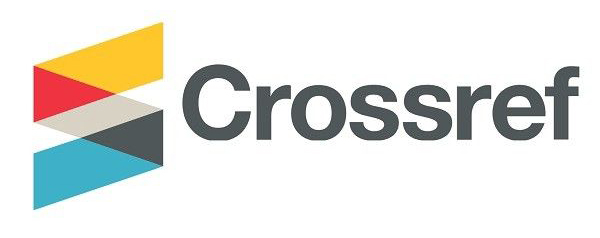Strengthening Capacity of Local Government for Prevention of Corruption Apparatus Through Sufi Governance Approach
DOI:
https://doi.org/10.21776/ub.jiap.2016.002.01.3Keywords:
personal resources, corruption, Sufi GovernanceAbstract
Indonesian bureaucracy issues were patched through bureaucratic reform program which is a requirement of post-crisis economic reforms in 1997. Bappenas insists that other areas of reform will not run properly without first reforming the government bureaucracy. Bureaucratic reforms launched by the government it is still not able to fix the bureaucratic culture, is particularly pressing bureaucracy tends to corrupt behavior. Source bureaucratic disease can basically identified two loci, namely internal and external (Irawati, 2012). Internally, the incidence of corrupt behavior within the bureaucracy is also due to weak internal control systems. Therefore the necessary tools to change the bureaucratic apparatus spirituality as the prevention and eradication of corruption. This is where the future will be a mystic governance tools to Overcome corruption. Sufi governance solution offered is to rely on a true monotheism. Because of monotheism is true then the bureaucrats in charge of serving the community will carry out their duties in a comprehensive manner; as which ones have been listed in the code of ethics of the bureaucracy, and he will always see the task as a trust rather than a means to accumulate wealth and depriving the people it serves.
References
Alatas. (1987). Korupsi: Sifat, Sebab, dan Fungsi, LP3ES, Jakarta.
Ancok, J. (1994). Psikologi Islam, Yogyakarta: Pustaka Pelajar.
Bowell, R. (2006). The 7 Step of Spiritual Quatient, Jakarta: Buana Ilmu Populer.
Darmoyuwono, W. (2008). Rahasia Kecerdasan Spritual. Jakarta: PT. Sangran Paran Media.
Farazmand, A (Eds). (2002). Administrative Reform in Developing Nations. Westport: Connecticut.
Gymastiar, A. (2002). Meraih Bening Hati Dengan Manajemen Qolbu, Jakarta: Gema Insani.
Hamzah, A. (1985). Pemberantasan Korupsi Melalui Hukum Pidana Nasional dan Internasional, PT Raja Grafindo Persada, Jakarta.
Hawari, D. (2002). Dimensi Religi dalam Praktek Psikiatri dan Psikologi. Jakarta: FK UI.
Irawati, B. (2012). Diskresi sebagai Tindak Pidana Korupsi: Kajian Kriminologi dan Hukum terhadap Fenomena Pejabat Otoritas, Jurnal MIMBAR, Vol. XXVII, No. 2 (Desember 2012) Jakarta
Khavari, K.A. (2002). Spiritual Intelligence (A Pratictical Guide to PersonalHappiness). Canada: White Mountain Publications.
Sinetar, M. (2001). Spiritual Intellegence (Kecerdasan Spiritual). Jakarta: Alex Media Komputindo.
Soeprapto, R. (2000). Pengembangan Kapasitas Pemerintah Daerah Menuju Good Governance, The Habibie Centre, Jakarta.
Steward, J. (1997). Managing Change Trough Training and Developmet. Jakarta: Gramedia.
Sukidi. (2004). Kecerdasan Spritual: Mengapa SQ Lebih Penting Dari Pada IQ dan EQ. PT. Gramedia Pustaka Utama, Jakarta.
Sulistiyani, A.T. & Rosidah. (2004). Manajemen Sumber Daya Manusia. Graha Ilmu, Yogyakarta.
Tasmara, T. (1995). Etos Kerja Pribadi Muslim. Jakarta: Dana Bhakti Wakaf.
Wibisono, C. (2002). Pengaruh Motivasi Spiritual Terhadap Kinerja Karyawan Industri Manufaktur di Batamindo. Disertasi: Universitas Airlangga. Surabaya.
Zadjuli. (1999). Membentuk Manusia menjadi Khalifah di Bumi yang Makdaniyah. Surabaya : Pusat Studi Kebijakan Alternatif.
Zohar, D. & Marshall, I. (2007). SQ: Kecerdasan Spritual. Bandung: Mizan.
Downloads
Published
Issue
Section
License
If your paper is accepted, the author identified as the formal corresponding author for the paper will receive an email prompting them to login into Author Services; where via the JIAP Author Licensing Service they will be able to complete the license agreement on behalf of all authors on the paper.














